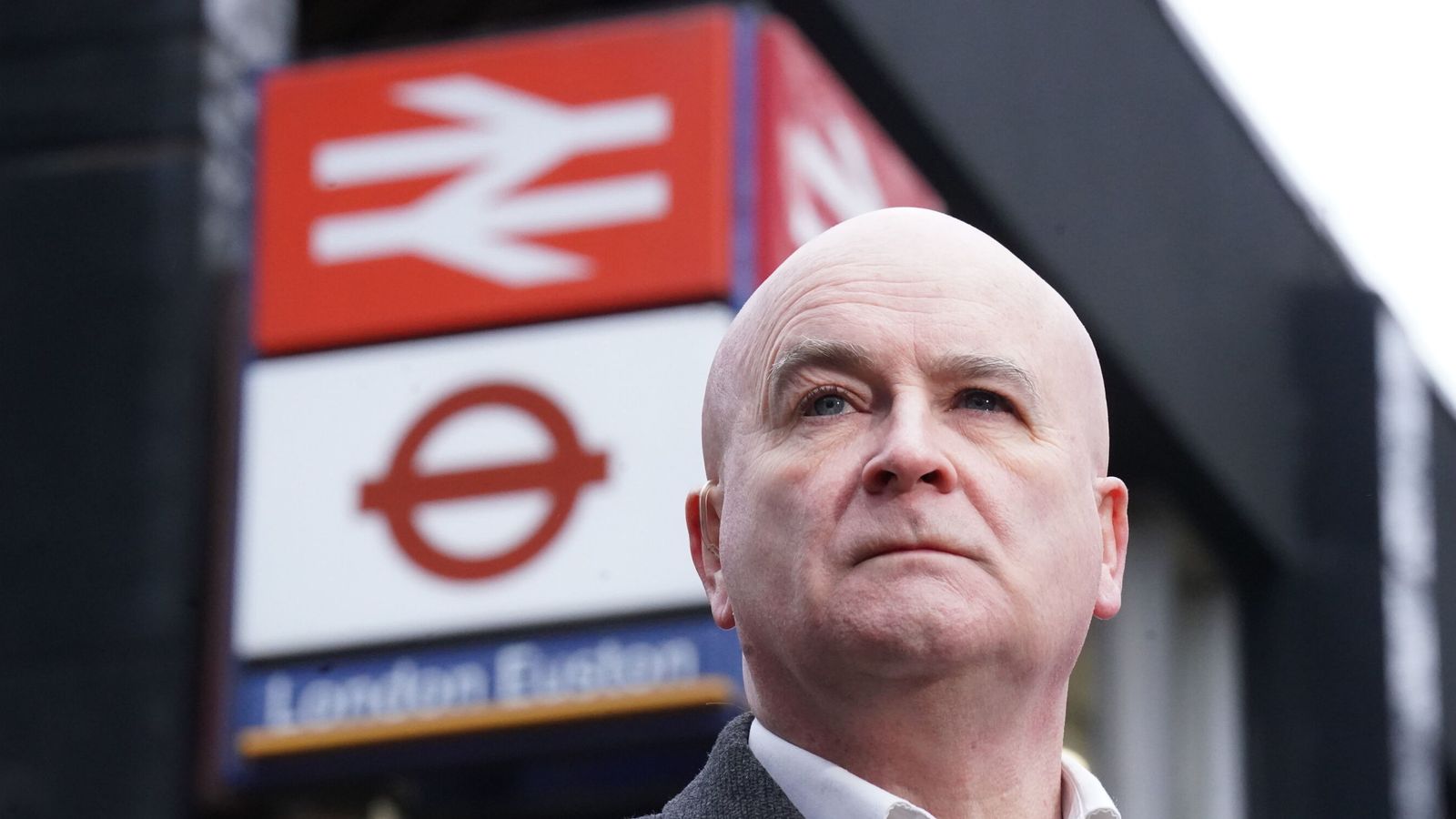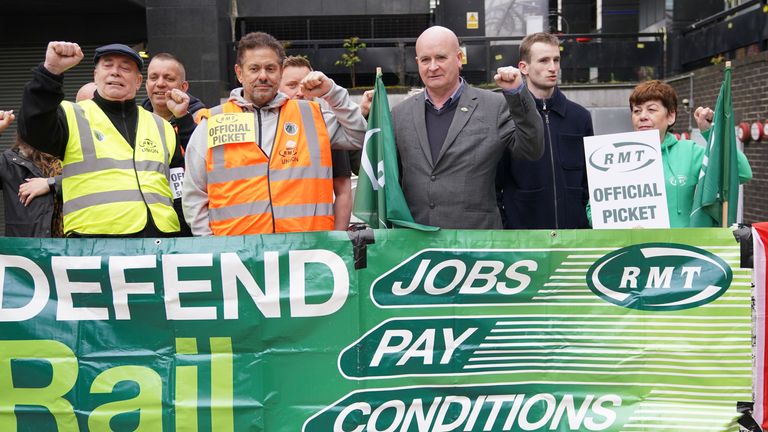
The boss of Britain’s biggest rail workers union has insisted strikes have been a “success” – despite no pay deal being agreed yet after almost a year of industrial action.
Mick Lynch, general secretary of the Rail, Maritime and Transport (RMT) union, said the rail strikes – which began in June 2022 – had managed to prevent bosses from pushing through redundancies and controversial reforms such as mass ticket office closures.
He also claimed a further success was the inspiration his union had provided to workers in other sectors.
Mr Lynch was speaking amid widespread disruption on Friday after around 20,000 workers, including guards and rail managers at 14 firms, walked out once again over pay and conditions.
Read more:
Train strikes: Which services will be affected this week?
A walkout by train drivers’ union ASLEF was also held on Wednesday, with more action planned this weekend, as part of the ongoing rows between the government and the unions.
Saturday’s walkout by ASLEF members will affect people travelling to the FA Cup final at Wembley, the Epsom Derby in Surrey, the England v Ireland test match at Lord’s, and Beyonce’s Renaissance tour date at the Tottenham Hotspur Stadium.
Mr Lynch, speaking from a picket line at London’s Euston station, said train companies were to blame for the disruption and added strikes would be called off as soon as a “fair” deal was agreed.
But he said the action had already achieved results, as railway firms “haven’t been able to implement any of their plans”.
He said: “We’ve pushed them [rail bosses] back on all the stuff they wanted to do – they wanted to make thousands of our people redundant, they wanted to shut every booking office in Britain, restructure our engineering workers, [and] cut the catering service.
“What we haven’t got is a pay deal, we haven’t got any guarantees on our members’ futures, but we have stopped them doing the worst aspects of their proposals and their ideas.”
Mr Lynch added: “It has been a success, our members are still with us, they’ve had three ballots to continue with the strike action under the law.
“Other people seem to have been inspired to fight back and take action in their own industries, so it has been a success and it’s put trade unions back on the map in Britain.”
The RMT and ASLEF have rejected pay offers put forward by the government so far this year, on the grounds that proposed terms on conditions and pay were not good enough, especially amid ongoing high inflation.
But some other disputes have been resolved, including a separate row involving RMT workers at Network Rail, after members voted to accept a revised pay offer in March.
Read more:
Train strike action ‘solid’ and will continue, says RMT
Number of days lost to strike action in 2022 highest since 1989
Health Secretary Steve Barclay rules out new pay offer for nurses
A spokesperson for the Rail Delivery Group (RDG), which represents the UK’s train service providers, hit back at the RMT’s claims and said “common-sense” reforms were “long overdue”.
They said: “There have been three pay deals offered which the RMT executive have reneged despite their negotiators in the room agreeing the terms.
“We’ve said all along we just want railway workers to have their say on the fair and affordable offer of up to a 13% rise over two years, plus guarantees on job security.”
The RDG added: “The only thing they [the RMT] have achieved is continuing to take money out of their members’ pockets, inflicting misery on thousands of people and damaging an industry which is vital to Britain’s economy and their own members’ livelihoods.”








